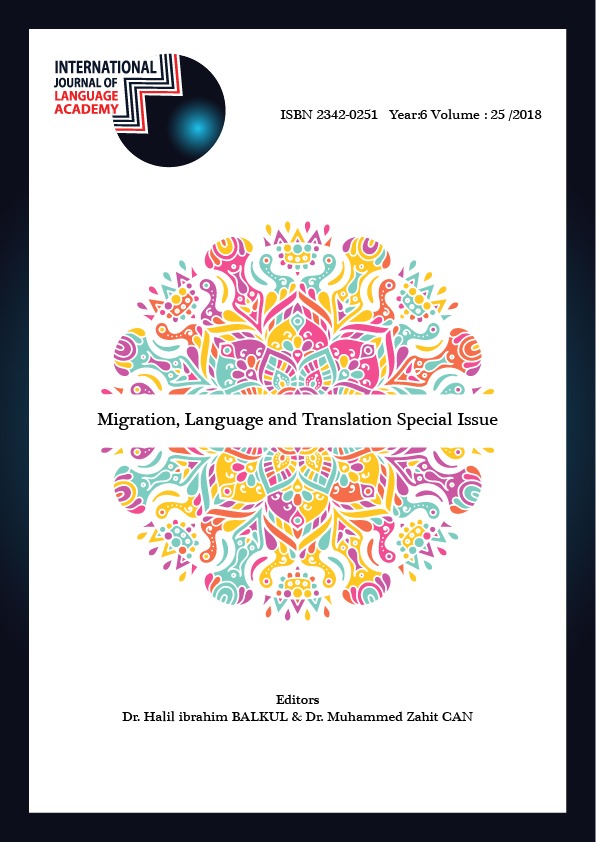Author :
Abstract
Bu çalışmada çevirmenin bir tiyatro metnini çevirirken dikkat etmesi gereken unsurlar irdelenecektir. Bilindiği üzere tiyatro metinlerinin sahnelenebilirlik olgusu büyük bir önem arz etmektedir. Çevirmenlerin özellikle bu açıdan büyük çabalar sarf ettikleri bilinmektedir. Karşılaştırmalı çeviri bilimine katkı sağlama amacıyla yapılmış olan araştırmada ünlü Alman yazar Johann Wolfgang Goethe'nin yazmış olduğu Faust adlı eserin Cafer Şimşek tarafından Türkçeye yapılmış olan çevirisini karşılaştırılacaktır. “Faust – trajedi ilk bölümü” ve Faust – trajedi ikinci bölümü“ olmak üzere iki bölümden oluşan eser, ancak söz konusu iki bölümün birlikte ele alınmasıyla içerik ve biçim açısından bir bütün oluşturmaktadır. Bu nedenle çevirmenden her iki bölümü de çevirmesi beklenmektedir. Yapılan araştırmada ise Şimşek’in sadece eserin ikinci bölümünü çevirdiği tespit edilmiş ve bu nedenle bu çalışmada “Faust II”nin çeviri analizleri yapılmıştır. Yapılan analizlerde çevirinin başarılı olup olmadığı değerlendirilmiş, kimi çeviri hataları irdelenmiş, çeviri önerileri ve bazı alternatif çeviri yaklaşımları sunulmuştur
Keywords
Abstract
How exactly can a translator translate a drama and is the translation into another language suitable for the stage? In this study we will compare the drama Faust written by Johann Wolfgang Goethe with the Turkish translation by Cafer Şimşek. The drama is about a scientist named Faust, who strives for knowledge but cannot enjoy his life and therefore makes a pact with the devil. Goethe has written this work, as well as the titles show Faust - the tragedy first part and Faust - the tragedy second part in two volumes and you can clearly establish a relationship to each other. In terms of content and form, these works hold together, and therefore, if you translate the second part, as Şimşek did, you should translate the first part as well, otherwise the reader may experience gaps in comprehension. We will compare the Turkish translation of Faust II with the original and determine whether the translation has been successful or not. If available, the differing passages are examined for the present translation problems, then translation suggestions and, if necessary, an alternative approach are sought. This study should contribute to the comparative translation. Before that, we will present a brief overview of the dramas translation and the problem of drama translations.





